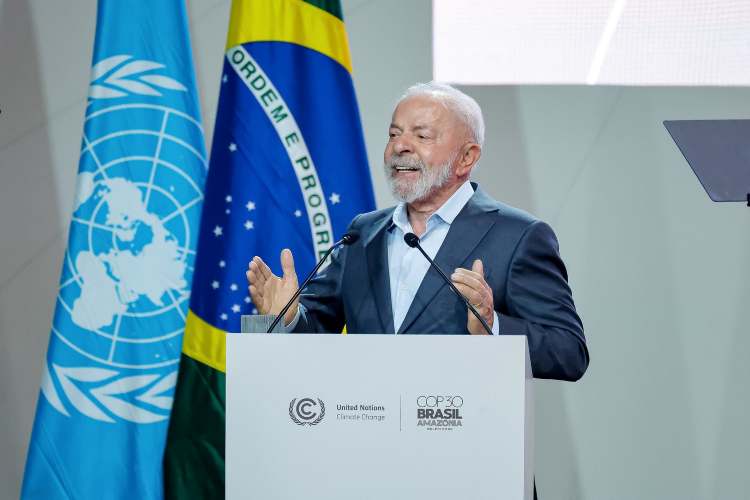At COP30 in Belém, Brazil, the United States has chosen not to send a formal federal delegation — a sharp departure from its traditional participation in past climate conferences. Earlier COPs, even under administrations less enthusiastic about climate action, saw Washington represented by official envoys or senior negotiators. This year’s scaled-down presence, limited mostly to state officials and civil society, signals a striking loss of visibility at a moment when climate diplomacy is shaping the future of global power.
The message is clear. America’s claim to leadership can no longer rest on its past commitments or domestic legislation. In the emerging green world order, credibility matters more than rhetoric. Power will no longer flow from military alliances or trade pacts alone, but from the ability to deliver a just and sustained energy transition.
READ I Delhi pollution crisis: Why bans won’t clean the air
Climate leadership as the new soft power
Since the Paris Agreement, climate policy has become a measure of legitimacy and soft power. Nations are now judged by their ability to mobilise finance, technology, and trust. The US sought to reclaim that mantle through the Inflation Reduction Act (IRA) — a $370-billion subsidy push for clean manufacturing — and through Energy Transition Partnerships in Asia and Africa.
Yet without federal representation at COP30, these initiatives lack diplomatic heft. The European Union’s Carbon Border Adjustment Mechanism (CBAM) is already setting global trade standards without US input. China, meanwhile, dominates clean-tech manufacturing, controlling over 80% of global solar production capacity, according to the International Energy Agency (IEA). The balance of green influence is shifting — toward those who build, finance, and export the transition.
Diminished US presence and the credibility gap
The limited US presence in Belém deepens the perception of inconsistency between America’s climate ambitions and its global responsibilities. The US remains the world’s largest oil and gas producer, even as it promises deep emission cuts. Its 2030 goal — reducing emissions by 50–52% from 2005 levels — now looks increasingly out of reach.
The $100 billion-a-year climate finance pledge, first made in 2009, remains unfulfilled. The OECD puts actual flows at about $89.6 billion in 2021, much of it loans rather than grants. With Washington absent, developing nations are left to negotiate key finance and adaptation mechanisms without its direct involvement. The World Bank’s slow progress on concessional climate lending only reinforces doubts about Western seriousness.
Emerging competitors: China, EU, and the Global South
As the US hesitates, others are shaping the green order. China has turned industrial policy into diplomacy, exporting solar, battery, and EV technologies through its Belt and Road Initiative (BRI). The European Union uses its regulatory might — the Green Deal and CBAM — to dictate terms of low-carbon trade.
At the same time, India, Brazil, and South Africa are forging South–South alliances linking climate finance to development goals. The New Development Bank, backed by BRICS, is funding renewable infrastructure independent of Western finance. According to BloombergNEF, emerging economies will account for two-thirds of new renewable capacity by 2030 — a decisive shift in climate influence away from the West.
Soft power and fractured alliances
Climate diplomacy once gave Washington moral authority beyond its military reach. That advantage is fading. The divide between the G7 and the Global South is now starker than at any time since the Paris Agreement. Nations facing energy poverty see limited value in American promises without financial backing. Even close allies express unease at Washington’s inward turn.
Sub-national actors — governors, mayors, and corporate leaders — have travelled to COP30 under the US Climate Alliance banner. Their presence highlights America’s strength in innovation but also its fragmentation. Without federal leadership, the US risks losing influence in the institutions and rule-making processes that define the next phase of climate action.
To regain credibility, the US must act on three fronts. First, it should align domestic green industrial policy with global fairness, ensuring its subsidies don’t alienate allies or distort trade. Second, Washington needs to back reforms in multilateral development banks (MDBs) that expand concessional climate finance. The World Bank’s 2024 reform plan, designed to triple lending for climate resilience, needs active US support. Third, it must partner with emerging economies on technology transfer and joint production to prevent a widening North–South divide.
The contest for global leadership is shifting from dominance to trust. Climate credibility is now the currency of power. By scaling back its participation at COP30, the US risks losing not just influence but the moral ground it once claimed. The world, it seems, is moving ahead without waiting for Washington.

